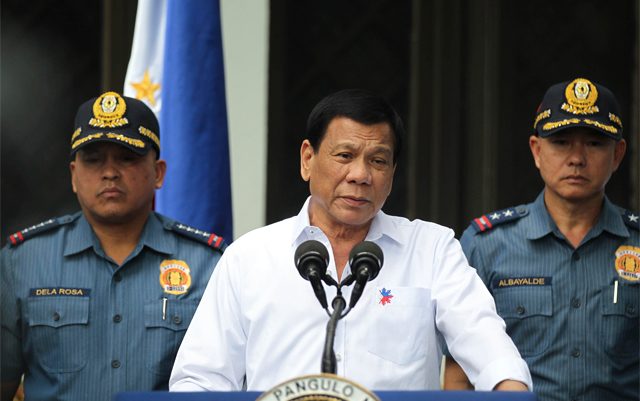Former Colombian President César Gaviria recently penned an op-ed piece in the New York Times that took current Philippine President Rodrigo Duterte to task for the latter’s handling of his country’s “War on Drugs.”
Many of you may be familiar with Gaviria’s name, especially if you are a fan of the Netflix series Narcos. Gaviria is the man who led the last battles against legendary drug kingpin Pablo Escobar and he was the President of Colombia when Escobar was killed in 1993 (or the end of Season 2, for those who only know the story from the Netflix show).
In his op-ed, Gaviria warns that President Duterte is making many of the same mistakes that he made as President of Colombia. “Illegal drugs are a matter of national security, but the war against them cannot be won by armed forces and law enforcement agencies alone,” Gaviria wrote. “Throwing more soldiers and police at the drug users is not just a waste of money but also can actually make the problem worse. Locking up nonviolent offenders and drug users almost always backfires, instead strengthening organized crime.”
Gaviria said that while his policies – and the ones of those who came after him in Colombia – may have made the country a little bit safer, it did so at a tremendous cost.
“My government and every administration since threw everything at the problem – from fumigating crops to jailing every drug pusher in sight,” wrote Gaviria in his op-ed. “Not only did we fail to eradicate drug production, trafficking and consumption in Colombia, but we also pushed drugs and crime into neighboring countries. And we created new problems. Tens of thousands of people were slaughtered in our antidrug crusade. Many of our brightest politicians, judges, police officers and journalists were assassinated. At the same time, the vast funds earned by drug cartels were spent to corrupt our executive, judicial and legislative branches of government.”
And yet, after all this, cocaine and other drugs still flow from Colombia to customers all around the world, some 23 years after Escobar was gunned down on a rooftop in Medellín. The old ways have not worked, and in his piece Gaviria laments the tactics used by Duterte.
“While the Filipino government has a duty to provide for the security of its people, there is a real risk that a heavy-handed approach will do more harm than good,” Gaviria said. “There is no doubt that tough penalties are necessary to deter organized crime. But extrajudicial killings and vigilantism are the wrong ways to go. After the killing of a South Korean businessman, Mr. Duterte seemed as if he might be closer to realizing this. But bringing the army in to fight the drug war, as he now suggests, would also be disastrous.”
Taking a tough stance against crime is always a popular path for politicians, a path that Gaviria took as President of Columbia. His stance then was popular but ultimately futile and devastating, a fate he predicts for the drug war policies of Philippine President Duterte.






